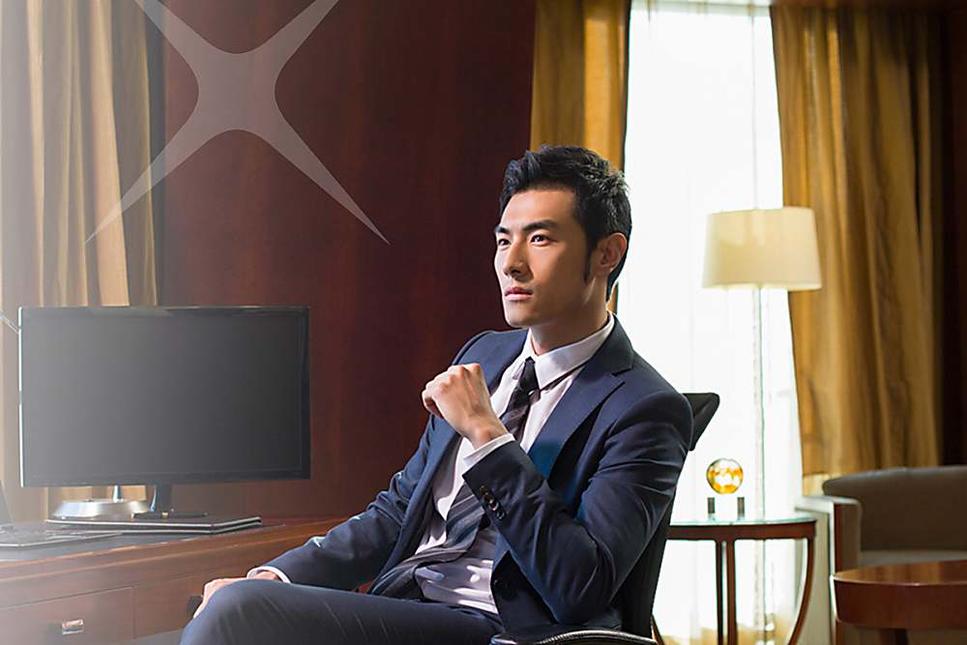Wong Kim Hoh meets...
Meet Mark Wiens, the man who eats his way to international fame
Mark Wiens remembers the meal which started it all.
“It was 2010. I was sitting on a street (in Bangkok) and I had ordered three dishes, all stir-fried at a stall right next to this extremely loud highway with buses, motorcycles just whizzing past. I was inches from the road. And then I took a photo and I said the photo is great but...”
As a blogger with a handful of readers at the time, he asked himself how he could let people have a better idea of what he was seeing and experiencing.
“So I told myself: ‘I’m going to try making a video.’ I took this little point-and-shoot camera, I filmed and showed the highway and said: ‘This is what I’m eating’.”
Something, he says, told him that “video was going to happen, technology and the Internet would only improve, and people would have smart devices to watch videos. If I didn’t start video now, I would fall behind”.
His instincts have served him well. Fast forward a decade, and Wiens is now a highly successful YouTuber whose entertaining food and travel videos have won him nearly 10 million followers and earned him more than 1.5 billion views. His 2018 Mexican Street Food Tour In Los Angeles video, for instance, has been watched more than five million times.
He has a loyal following all over the world, including Singapore. During our two-hour chat at Tong Ah Eating House in Keong Saik Road, a steady stream of fans – from young professionals to housewives – ask for wefies with the unassuming 36-year-old wearing a black T-shirt with the words “I travel for food” emblazoned in front.
Genuinely friendly and polite, Wiens was born in Phoenix, Arizona, the younger of two children of missionaries. His father is American, his mother a Hawaiian-born Chinese.

“My paternal grandparents came from China and my granddad was a very good Cantonese chef so we have food roots,” he says.
His childhood was unusual.
“When I was four, we lived in France for a year. Then we moved to the Democratic Republic of Congo where we lived in the countryside, kind of in the jungle, for three or four years. And after that, we transferred to Kenya and lived there for eight years,” says Wiens.
The peripatetic lifestyle was hugely formative.
“I didn’t find it unsettling. At that age, I just thought everything was normal. I found it very easy to adapt to wherever we went,” he says, adding that he learnt to be flexible and independent from a young age.
“Learning about new cultures, trying new foods” became a passion, one that has been “foundational” to his love for travelling and meeting people, and drives what he does today. After completing high school, he went back to the United States, where he majored in global studies at Arizona State University.
“It’s basically a degree for somebody who doesn’t know what he wants to do,” he quips. “I really had no plan. I was planning to travel after I finished that degree, but even that was not really an objective.”

To put himself through university, he took on different jobs, including that of a junk remover.
“We’d just drive a truck around and pick up stuff people wanted to dispose of, like old beds, sofas and fridges. Sometimes, people would throw away really good-quality stuff, including jewellery,” says Wiens, who made extra pocket money selling these items online.
His gigs not only paid for his education but also financed his travels to South America after graduation in 2008. While there, he signed up for a one-month Teaching of English to Speakers of Other Languages, or Tesol, course in Buenos Aires.
“I was going to travel, but I was also going to do something constructive, not just walk around and spend money,” says Wiens, who went home to Arizona after several months to attend his elder sister’s wedding.
Around this time, the traction that blogging had been gaining started to fascinate him.
“I had been taking photos of things I did and ate and posting them on Facebook but I thought it would be so cool to have a domain to do the same.”
He settled on migrationology as a blog name because he wanted it to be about travel experiences, including local immersion and, of course, food. Monetisation was not part of the equation; after all, the word “influencer” was then not part of the modern lexicon.
“It was supposed to be a personal blog because I never thought anybody would read it, apart from my parents and my friends.”
Before long, the travel bug bit again. This time, he hightailed it to Bangkok on a one-way ticket and with about US$5,000 (S$6,900) in his pocket. The plan was to do things on a budget, and eat and travel until the money ran out.
“I really wanted it to last,” says Wiens, adding that his upbringing taught him to live frugally. “I would eat only street food, and stay in the cheapest hostel with a bunk bed or couch-surf for months,” he says.
For almost half a year, he travelled through Thailand, Malaysia, Singapore, Indonesia and the Philippines before returning – almost broke – to the Thai capital to meet an old friend. Not ready to go back to the US, Wiens found a job teaching English.
In the meantime, he kept beavering away at his personal blog, and finding out more about the business of blogging. While teaching gave him an income, being confined to a classroom was not something he fancied for the long term.
One day, he discovered he had made four cents on his blog, thanks to a Google advertisement.
“The four cents had so much meaning for me because it seemed to come out of nowhere. It was hugely inspirational because I thought: ‘This is a start. If I could multiply that and turn that into $1, that could be a meal for a day’, so that was when I started moving towards a more informational journal, writing useful pieces like ‘10 things to do in Singapore’.”

Search engine optimisation (SEO) was his next obsession.
“It was the age of keywords, so I spent all my time learning about SEO and blogging,” says Wiens, who spent many a night in cybercafes updating his blog and learning about the importance of e-mail marketing.
A breakthrough came when he decided to jump on the e-book bandwagon. He had by then amassed a ton of information about Thai street food and decided to turn it into the 150-page Eating Thai Food Guide, which he sold for US$9.99 in 2011.
“It was a huge financial breakthrough for me because I could finally have a business model,” says Wiens. The guide sold about 100 copies in the first few weeks.
By then, he had met his wife Ying, who attended his English classes for adults. They got married in 2013 and, instead of a wedding cake, had a big durian to celebrate their union.
“Ying took me to unique places to eat that she knew. And that was when I thought about the thing that was missing from all the eating – nobody knew how it tasted and I felt I needed to explain that to people. So video was added to the formula – show the food being cooked, show the location, take a bite and explain what it’s like.”
It took a while, but the strategy worked and soon he could earn enough from his online activities to support himself.
“But it needed to grow if I wanted to have a family and more of a lifestyle,” says the father of a six-year-old boy.
He committed himself to making at least two videos a week. Keeping that commitment was not easy, especially in the early days when the financial rewards were feeble. Thankfully, Bangkok was cheap and he could survive on a couple of hundred dollars a month.
“If I had stayed in the US, I would have had to get a job immediately. And I would never have time to invest into doing something.”
His perseverance paid off.
“It’s hard to say when there was an actual point (when it paid off), but I really think it took very, very strict consistency and never giving up. I would do two videos per week and then just keep trying to improve. As the years went on, technology improved and I was able to get better cameras and equipment.
“People started getting cell phones, the Internet started becoming more mainstream… more and more content was being published on YouTube, which led to more people coming to the channel to watch videos. So there was a snowball effect.”
Slowly, he started getting advertisers and sponsors, but he poured everything he made back into his fledgling venture so that he could travel and afford better equipment to make better videos. He couldn’t think of anyone who was posting travel and food videos online when he started.
“The two guys that I really loved were Anthony Bourdain and Andrew Zimmern: they were the two main food travel guys in the world then. They were hugely inspiring but they were on TV, not online.”
Learning to be natural on camera took time, but he soon developed what are now his trademarks: the easy manner, the wide eyes, the deliriously happy expression and the ecstatic moans when he sinks his teeth into a dish.
There have been detractors, he says.
“When you do online content, you need to have a thick skin, which I do, because people can be quite painful, unfiltered and hurtful sometimes. I’m emotional about food, but I’m not emotional about what people say. I don’t mind if people diss me. I’m doing what I enjoy and I’m not going to be able to please everybody so I’ve never taken negative comments personally.”
An adventurous soul, Wiens has never been squeamish about food. “I’m willing to try anything,” pronounces the 1.8m-tall Internet star who maintains his 75kg frame by taking regular 45-minute runs.

Exotic dishes he has tried include lou, a northern Thai dish of raw pig’s blood mixed with spices and consumed with raw pig’s kidney on the side. Then there was the time when he was with a village chief in Kenya watching a goat get slaughtered.
“Just moments after, the chief reaches into the carcass, grabs the first kidney and with a big knife, slices it and gives me half. Raw kidney sashimi with the chief. It was pretty tasty, fresh, warm and kind of vibrating a bit,” he recalls with a grin.
He has a guiding principle when it comes to food.
“I’d never want to try anything just to give it a bad review. I’d never want to act arrogant or ignorant about a person’s food which he or she cherishes. No matter what it is, whether it is bizarre or unique or slightly dangerous healthwise, I would never, never want to offend,” says the YouTuber who reckons he got his first million followers around 2016.
He also has rules when it comes to content.
“I’m strict in choosing the content I want to feature, the places I want to go and not featuring places that don’t fit my personality or style. My main goal is to go to a place and eat food where locals would eat,” says Wiens, who also opened a small restaurant in Bangkok called Phed Mark with three friends a couple of years ago.
The restaurant specialises in pad krapao, Thai basil stir-fried with meat and vegetable of one’s choice, a dish extremely popular with both Thais and foreigners. “There are infinite varieties, but we opened the restaurant to serve the version we like: dry-fried, smoky and full of spice.”
Recently, Wiens took on something new. He became the host of Food Affair With Mark Wiens, a six-part HBO documentary series on Singapore food produced by filmmaker Eric Khoo that will premiere on Nov 18 on HBO Go. The two had met several years ago when Khoo’s youngest son Lucas – a big Wiens fan – wrote to tell him he had to try his favourite wonton mee stall – Guangzhou Mian Shi in Tanglin Halt – if he came to Singapore.

When the Singaporean filmmaker decided to produce Food Affair, Wiens immediately came to mind. Over six episodes, the vlogger explores not just Singapore’s rich food culture – from Michelin-starred restaurants to famous hawker stalls – but also teases out the personal stories of famous food personalities. They include Mr Abdul Malik Hassan, who grew his father’s Adam Road nasi lemak stall into the Crave chain with more than 40 outlets, and executive chef Tristin Farmer of three-Michelin-starred Zen.
The experience was sometimes nerve-racking for Wiens, who is used to working with just his wife and a small camera. “This production had a crew of more than 20, and everybody’s just kind of focused on you. But luckily Eric, who is a big foodie, is amazing. The crew were also amazing and the chefs and hawker masters they chose were fantastic. Being able to converse and hang out with somebody you can be natural with makes it a lot more comforting and easier.”
If another series comes his way, he is more than game. Meanwhile, he just wants to continue what he does – share his joy of food and cultures.
“Food really brings people together. It resonates with so many people around the world. It’s one of those things that pretty much everybody can appreciate.”
Join ST's Telegram channel and get the latest breaking news delivered to you.





No comments:
Post a Comment